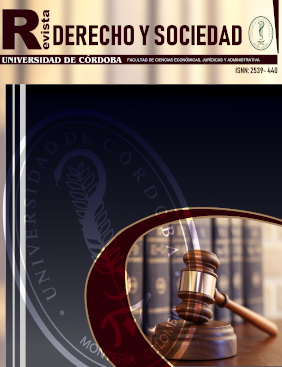Importance and effects of the t-194 sentence of 1999
Importancia y Efectos De La Sentencia T-194 De 1999
Show authors biography
On the twenty-five 25 March of a thousand nine hundred and ninety-nine 1999, the Fourth Guardianship Review Chamber of the Constitutional Court, passed the judgment T-194 of 1999 on the action for review of the judgments handed down by the Superior Court of the Judicial District Monteria and the Supreme Court of Justice in the process of the proceedings filed under number T-175.217. against the Electric Corporation of the Atlantic Coast (CORELCA), and the mixed-economy, commercial and industrial society of the State Empresa Multipropósito Urrá S.A., in which the requests of Alvaro León Obando Moncayo were estimated in the name and representation of the members of the Association of Producers for Community Development of the Lorica Large Swamp (ASPROCIG) to request to order the defendant entities: (1) suspend the activities that violate them; (2) initiate the implementation of compensation and mitigation projects; (3) advance the impact studies that were omitted; (4) implement management, mitigation and compensation plans with effective community participation, and 5) suspend the filling of the dam until the necessary measures are taken to not cause further harm to the population and the environment.
In general, the Court partially reversed the judgments made by the Criminal Standing Chamber of the Supreme Court of Justice on 8 September 1998 and the Criminal Chamber of the Superior Court of the Judicial District of Monteria on 3 July 1998 giving reason to the petitioners and, instead, ielo the rights of members of the Association of Producers for Community Development of the Large Ciénega de Lorica (ASPROCIG), to participation and to a healthy environment; and upheld the second-instance ruling, as soon as he denied the protection of the rights to life, health and work. In this light, this research aims to analyse the importance and effects of this failure on society, in particular because of the limits that it sets to the control bodies and the ratification of the sanctioning capacity that the administrative bodies have on the impacts of the construction of the civil works of the Urrá I hydroelectric plant, and the diversion of the Sinú river.
The approach to work was done from alternative mechanisms to the principle of proportionality to justify the preference of one right over another resulting from a weighting process, and that the theory of the impact of judicial activism of McCann (1994), Feeley and Rubin (1998), Gerald Rosenberg (1991) and Cesar Rodríguez (2012) are a good example of this, in that sense, our idea is that judicial activism, can be, at least in some cases, or in relation to some aspects, highly satisfactory.
Article visits 746 | PDF visits


